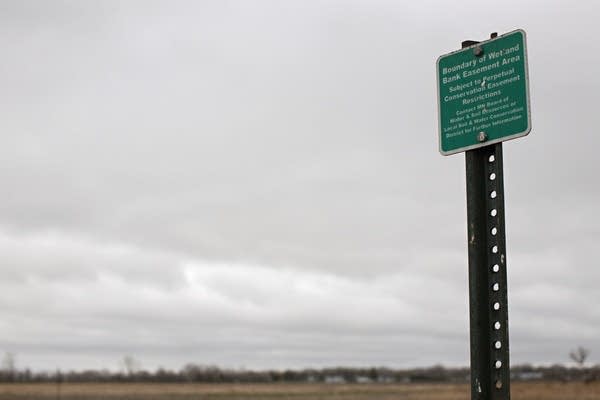In MN, enforcement of pollution laws goes on — with a few exceptions

A sign marks the boundary of a wetland bank easement area near Downer, Minn., in 2016. The Minnesota Pollution Control Agency is granting leeway in meeting some of its water and air quality protection requirements during the coronavirus pandemic, prompting some environmental groups to call for more transparency.
Ann Arbor Miller | MPR News 2016
Go Deeper.
Create an account or log in to save stories.
Like this?
Thanks for liking this story! We have added it to a list of your favorite stories.


